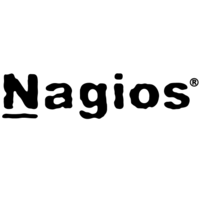Need advice about which tool to choose?Ask the StackShare community!
collectd vs Nagios: What are the differences?
Developers describe collectd as "System and applications metrics collector". collectd gathers statistics about the system it is running on and stores this information. Those statistics can then be used to find current performance bottlenecks (i.e. performance analysis) and predict future system load (i.e. capacity planning). Or if you just want pretty graphs of your private server and are fed up with some homegrown solution you're at the right place, too. On the other hand, Nagios is detailed as "Complete monitoring and alerting for servers, switches, applications, and services". Nagios is a host/service/network monitoring program written in C and released under the GNU General Public License.
collectd and Nagios belong to "Monitoring Tools" category of the tech stack.
Some of the features offered by collectd are:
- fast
- simple
- integrated
On the other hand, Nagios provides the following key features:
- Monitor your entire IT infrastructure
- Spot problems before they occur
- Know immediately when problems arise
collectd and Nagios are both open source tools. collectd with 2.26K GitHub stars and 1.08K forks on GitHub appears to be more popular than Nagios with 60 GitHub stars and 36 GitHub forks.
The objective of this work was to develop a system to monitor the materials of a production line using IoT technology. Currently, the process of monitoring and replacing parts depends on manual services. For this, load cells, microcontroller, Broker MQTT, Telegraf, InfluxDB, and Grafana were used. It was implemented in a workflow that had the function of collecting sensor data, storing it in a database, and visualizing it in the form of weight and quantity. With these developed solutions, he hopes to contribute to the logistics area, in the replacement and control of materials.
- free open source
- modern interface and architecture
- large community
- extendable I knew Nagios for decades but it was really outdated (by its architecture) at some point. That's why Icinga started first as a fork, not with Icinga2 it is completely built from scratch but backward-compatible with Nagios plugins. Now it has reached a state with which I am confident.
Pros of collectd
- Open Source2
- Modular, plugins2
- KISS1
Pros of Nagios
- It just works53
- The standard28
- Customizable12
- The Most flexible monitoring system8
- Huge stack of free checks/plugins to choose from1











































